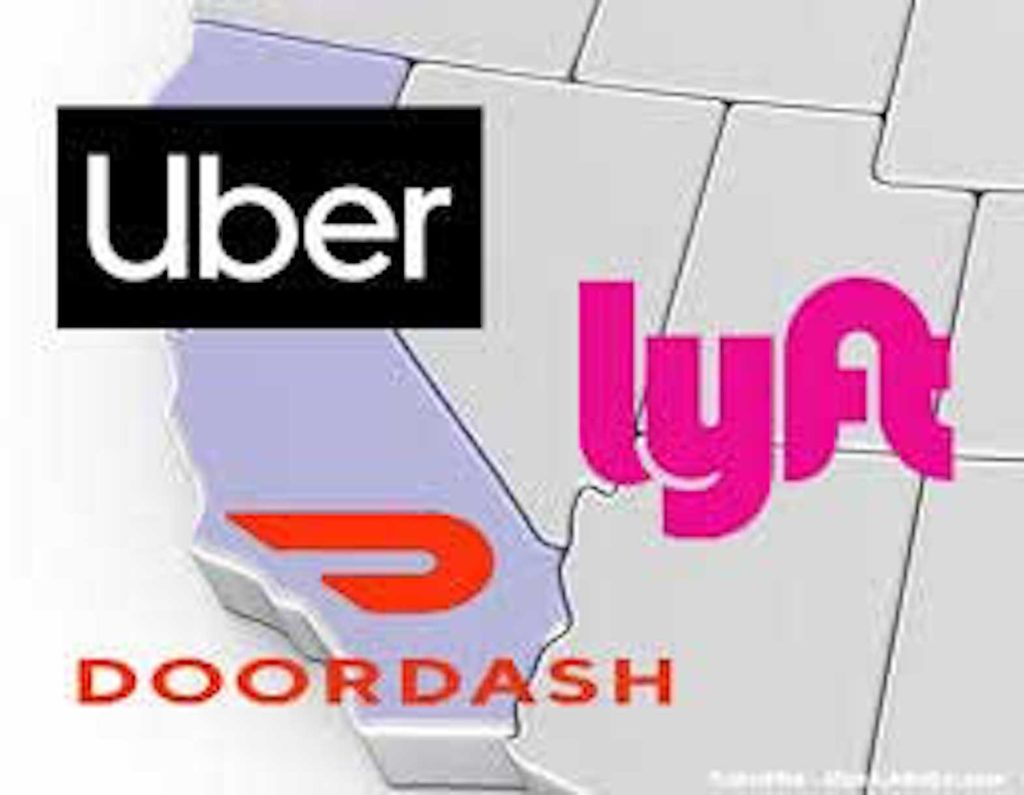Prop. 22’s denial of employee status bad for California workers

App-based companies like Uber, Lyft, and Doordash classify their workers as “independent contractors.” REUTERS
Independent contractors are in business for themselves and generally work on a freelance basis, often with several clients. They either have specialized skills (e.g., actors, writers) or advanced degrees (e.g., lawyers, doctors) that allow them to decide when, where, and how they perform the work. True independent contractors are not employees and, therefore, do not have the same rights and protections accorded to employees. It is illegal to misclassify employees as independent contractors.
App-based companies like Uber, Lyft, and Doordash classify their workers as “independent contractors.” Despite the “independent” categorization, these companies retain the right to control how the worker should do the work, what tasks to accomplish and how to accomplish them. These workers, therefore, are misclassified.
In 2018, the California Supreme Court decided a case that sought to outline more clearly the limited circumstances when a worker becomes an independent contractor. This decision was widely seen as strengthening protections for workers by clarifying when they should be considered employees. In 2019, California signed into law Assembly Bill 5, which codified the high court’s ruling.
In a bid to retain their business model, Uber, Lyft, and other app-based companies funneled nearly $200 million into the creation of Proposition 22, a measure that would legalize their current practice of misclassifying their drivers as independent contractors. With Prop 22, California voters must now decide whether to exempt app-based companies from the laws laid out in AB 5.
Even if it is conceded that app-based companies provide an easy means to make extra money, and give some workers time flexibility that they would not otherwise have with a regular job, it is unclear if workers will be paid overtime if they are made to work more than 8 hours per day, or if they are entitled to be paid at least the minimum wage. What if they get injured while working? What if they need to take sick time or become disabled? Prop 22 purports to address these issues but the solutions it offers fall far short of actual protections for workers.
Here are some of the reasons why you should vote NO on Prop 22:
- It legalizes the practice of not paying workers for all hours worked. Workers would not be paid for the time they spend logged in, ready to work, but without a passenger or package and would only receive limited mileage benefits ($.30 to a mile).
- Workers are still denied sick leave, paid family leave, or other emergency sick leave. Under Prop 22, app-based workers are not entitled to any leave.
- It fails to provide clear remedies for workers who experience harassment or retaliation on the job. The measure in fact weakens current anti-discrimination laws because the list of protected characteristics for independent contractors are narrowed and the process to bring claims are made more difficult.
- It blocks access to unemployment benefits. If a worker loses the job, unlike employees, they would not be able to avail of state unemployment insurance.
- Even though it makes a big show of outlining compensation should workers be injured on the job, the coverage is still not on par with California workers’ compensation law. Workers may be denied coverage or their benefits are capped, regardless of the severity of injuries.
- It is extremely difficult to change this law, once passed. Prop 22 explicitly requires a 7/8th vote of the legislature to amend the law, which is unusual.
- It essentially makes app-based companies exempt from California law to the detriment of ordinary workers. It sets a bad precedent and begins the erosion of employment rights and protections.
At the end of the day, workers lose when they lose their employment status. Attempts by billion dollar companies to strip them of these rights should not be allowed.
The Law Offices of C. Joe Sayas, Jr. welcomes inquiries about this topic. All inquiries are confidential and at no-cost. You can contact the office at (818) 291-0088 or visit www.joesayaslaw.com. [For more than 25 years, C. Joe Sayas, Jr., Esq. successfully recovered wages and other monetary damages for thousands of employees and consumers. He was named Top Labor & Employment Attorney in California by the Daily Journal, consistently selected as Super Lawyer by the Los Angeles Magazine, and is a past Presidential Awardee for Outstanding Filipino Overseas.]

